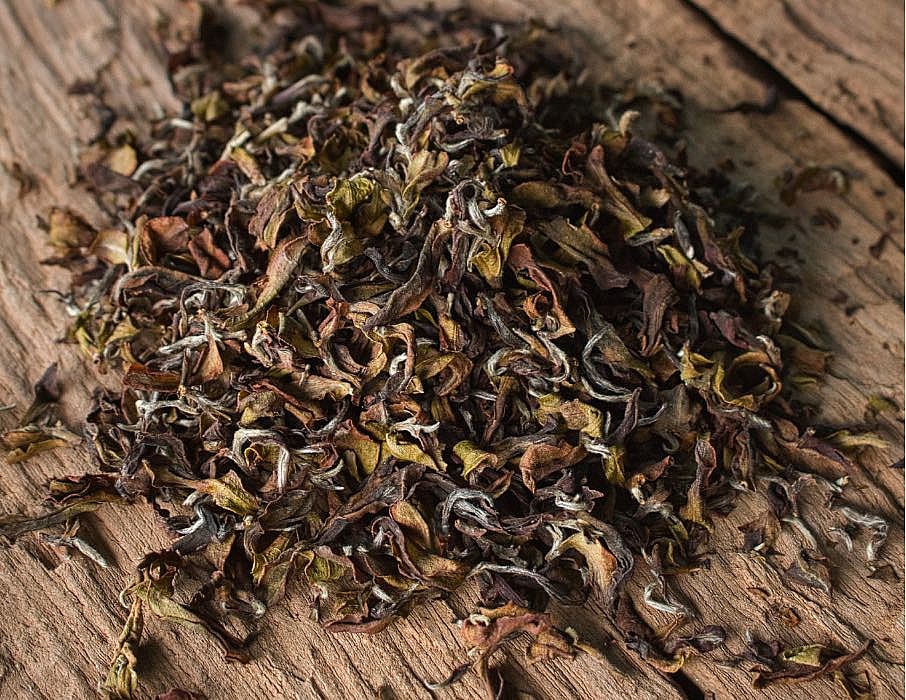Concerns Rise Over The Future Of Darjeeling Tea

Table of Contents
Climate Change and its Impact on Darjeeling Tea Production
Climate change is arguably the most significant threat to Darjeeling tea. Changing weather patterns, characterized by erratic rainfall, unpredictable temperature fluctuations, and increasingly frequent extreme weather events, are severely impacting tea production. These shifts directly affect the quality and quantity of Darjeeling tea leaves.
The delicate balance required for optimal tea growth is disrupted by these volatile conditions. For instance, warmer temperatures lead to increased pest infestations, damaging the tea bushes and reducing yields. Changes in the ideal growing season, crucial for the development of the unique muscatel flavor, are also evident. Furthermore, water scarcity, a direct consequence of altered rainfall patterns, significantly impacts irrigation, a critical factor in tea cultivation.
- Increased pest infestations due to warmer temperatures: The warmer climate provides ideal breeding grounds for pests, leading to increased pesticide use and potentially impacting the tea's quality and safety.
- Changes in the ideal growing season: The timing and duration of the plucking seasons are shifting, affecting the overall yield and the characteristic flavor profile of Darjeeling tea.
- Water scarcity impacting irrigation: Reduced rainfall and increased evaporation are causing water stress, impacting the growth and health of tea bushes.
- Increased frequency of extreme weather events: Hailstorms, landslides, and floods can devastate entire tea gardens in a single event.
Political and Socio-Economic Factors Affecting Darjeeling Tea
Beyond climate change, political instability and socio-economic factors significantly contribute to the challenges faced by the Darjeeling tea industry. Recurring labor disputes and strikes frequently disrupt harvests, resulting in significant production losses. Land ownership issues and disputes further complicate the situation, hindering investment and sustainable development.
Moreover, many tea farmers and workers lack access to fair prices for their produce, leading to economic hardship and hindering investment in improved farming techniques. Inadequate government support and insufficient investment in infrastructure and technology further exacerbate these challenges.
- Labor disputes and strikes affecting harvests: Industrial action often results in significant losses and negatively impacts the overall production capacity.
- Land ownership issues and disputes: Unclear land titles and ownership disputes create uncertainty and hinder investment in long-term sustainable practices.
- Lack of access to fair prices for tea farmers: Low prices offered for Darjeeling tea often leave farmers struggling to make a living and invest in improvements.
- Limited investment in infrastructure and technology: Lack of modern processing facilities and transportation networks increases production costs and reduces competitiveness.
The Decline in Darjeeling Tea Yields and Quality
The combination of these factors has led to a noticeable decline in both the yield and quality of Darjeeling tea. Aging tea bushes, often neglected due to economic constraints, are a major contributor to reduced productivity. The lack of replanting with new, high-yielding, and disease-resistant varieties further compounds the problem. This diminished output, coupled with lower quality tea, directly impacts the brand's reputation and market value, making it increasingly difficult to compete with other tea-producing regions.
- Aging tea bushes requiring rejuvenation: Many tea gardens require significant replanting to maintain productivity and quality.
- Lack of investment in new planting material: Limited access to high-quality planting material and the lack of resources hamper efforts to rejuvenate tea gardens.
- Competition from other tea-producing regions: Darjeeling tea faces fierce competition from other regions offering cheaper alternatives.
- Impact of unsustainable farming practices: Unsustainable farming methods negatively impact soil health and long-term productivity.
Potential Solutions for Ensuring the Future of Darjeeling Tea
Addressing the multifaceted challenges facing Darjeeling tea requires a multi-pronged approach. Adapting to climate change involves investing in research and development of drought-resistant and disease-resistant tea varieties, along with improved water management techniques. Sustainable agricultural practices, focusing on soil health and biodiversity, are crucial for long-term productivity.
Improving the socio-economic conditions of tea farmers and workers is equally vital. Fair trade practices, guaranteeing fair prices and improved working conditions, are essential. Government initiatives offering financial support and promoting sustainable farming methods are critical for the industry's future. Moreover, embracing technology and innovation can lead to improved yields and enhanced quality.
- Investment in research and development of climate-resilient tea varieties: Developing tea plants that can withstand changing climatic conditions is crucial for future production.
- Implementation of sustainable farming practices to improve soil health: Promoting sustainable practices will improve the long-term health and productivity of tea gardens.
- Support for fair trade initiatives to ensure fair prices for farmers: Fair trade ensures farmers receive fair prices for their produce, encouraging sustainable practices and improving livelihoods.
- Government initiatives to promote the Darjeeling tea industry: Government support through subsidies, infrastructure development, and marketing campaigns can help revive the industry.
Conclusion: Securing the Legacy of Darjeeling Tea
The future of Darjeeling tea is undeniably challenged by climate change, socio-economic factors, and declining yields. However, through concerted efforts focusing on sustainable practices, fair trade, and technological innovation, a brighter future for this iconic beverage is achievable. By supporting sustainable Darjeeling tea producers, advocating for fair trade practices, and raising awareness about the challenges faced by this industry, we can collectively secure the legacy of authentic Darjeeling tea for generations to come. Let’s work together to safeguard the future of Darjeeling tea, ensuring its unique flavor and heritage endure.

Featured Posts
-
 Lizzos Its About Damn Time Tour Ticket Prices And Where To Buy
May 04, 2025
Lizzos Its About Damn Time Tour Ticket Prices And Where To Buy
May 04, 2025 -
 Bakole Vs Ajagba Your Guide To Betting On The Fight
May 04, 2025
Bakole Vs Ajagba Your Guide To Betting On The Fight
May 04, 2025 -
 Singapore Votes A Pivotal Election For The Nation
May 04, 2025
Singapore Votes A Pivotal Election For The Nation
May 04, 2025 -
 Nigel Farages Integrity Questioned Amidst Leaked Whats App Messages Scandal
May 04, 2025
Nigel Farages Integrity Questioned Amidst Leaked Whats App Messages Scandal
May 04, 2025 -
 Gigi Hadid Bradley Cooper And Leonardo Di Caprio Avoiding Ex Drama
May 04, 2025
Gigi Hadid Bradley Cooper And Leonardo Di Caprio Avoiding Ex Drama
May 04, 2025
